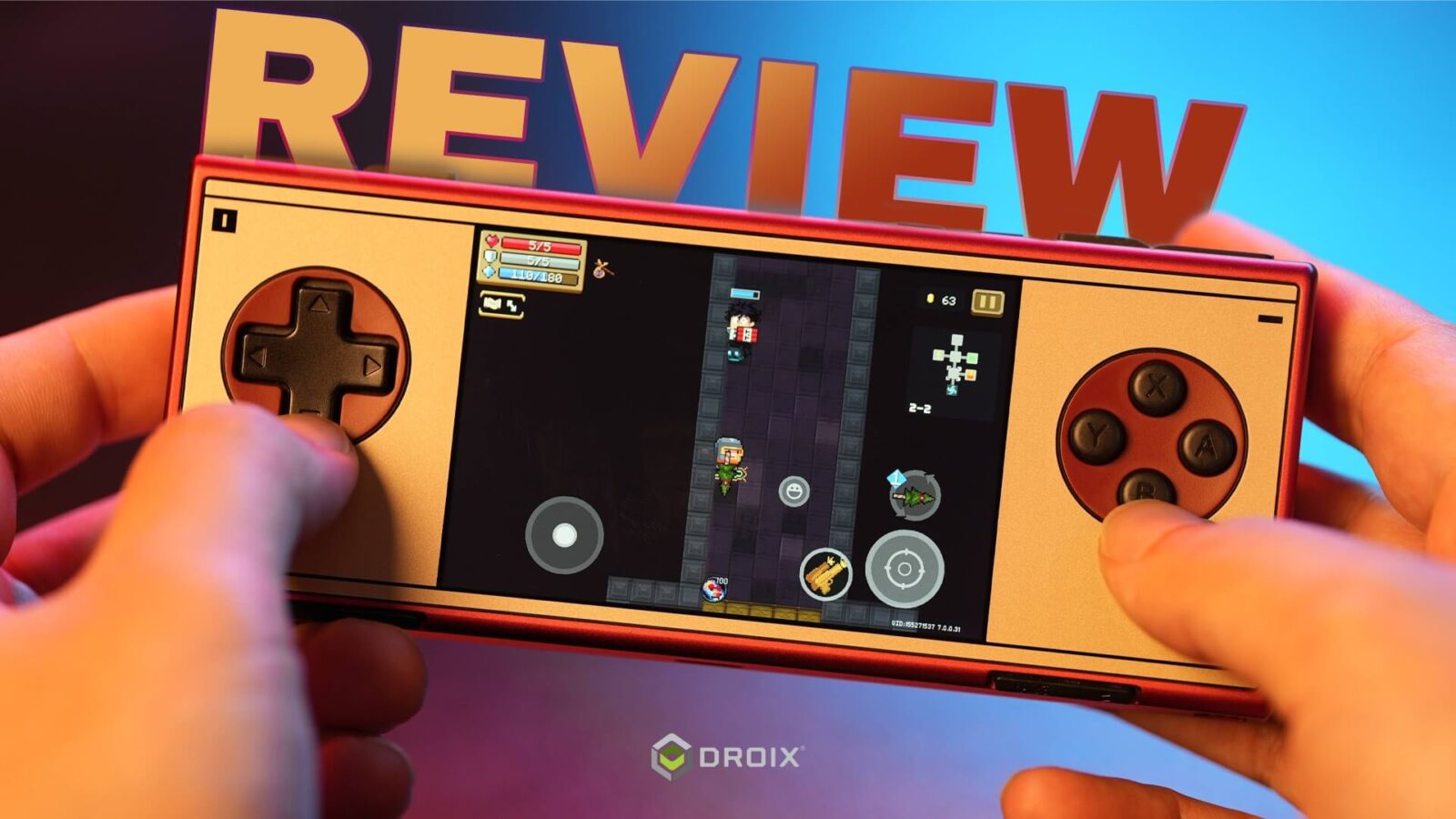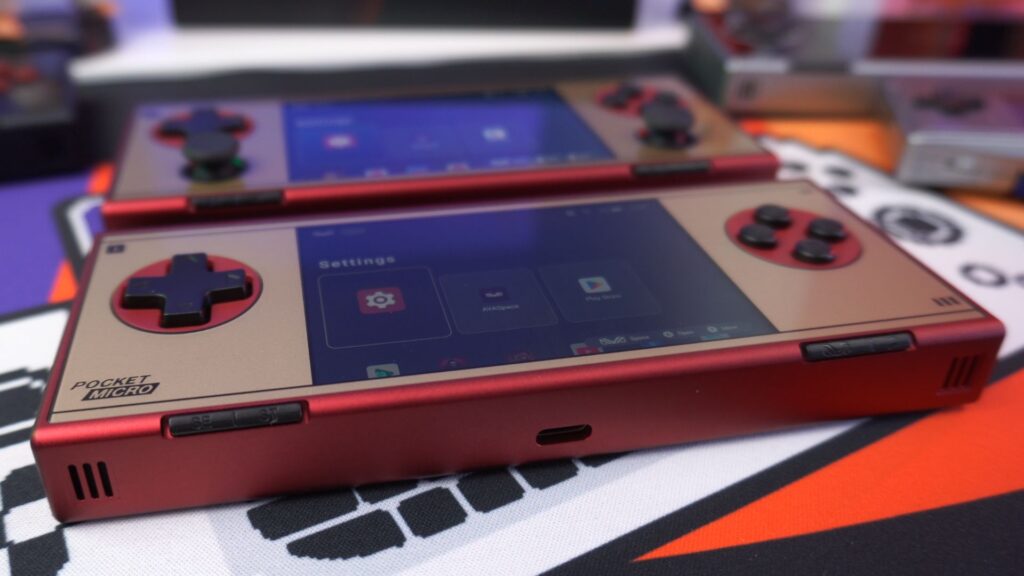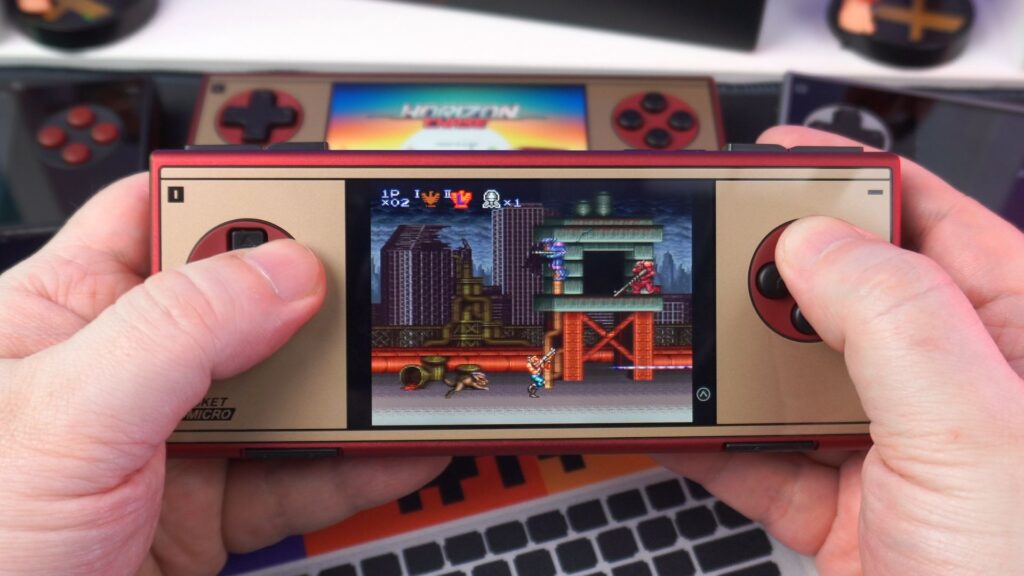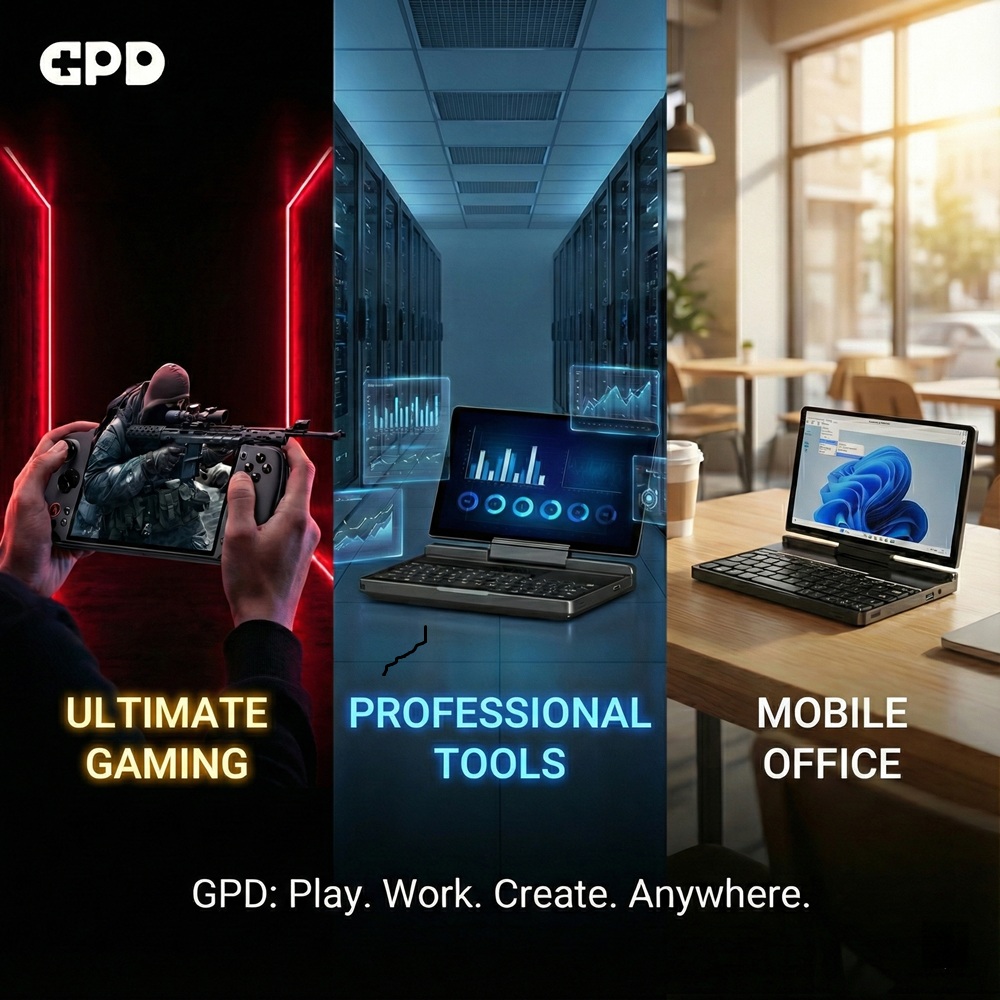AYANEO Pocket Micro Classic Review
-
Design
(5)
-
Build Quality
(5)
-
Display
(4.5)
-
Performance
(4.5)
-
Features
(4)
-
Software
(4.5)
Summary
Overall
4.6User Review
( votes)Pros
- Premium building quality with CNC aluminium alloy shell
- Compact & Portable
- Impressive emulation performance
- AYANEOs custom software
Cons
- Lack of 3.5mm headphone port, with strange choice of USB port usage
- The 3.5″ display may be too small for some users
We got our hands on the upcoming AYANEO Pocket Micro Classic, and since we recently reviewed the AYANEO Pocket Micro model, this will be a brief comparison of the changes rather than a full AYANEO Pocket Micro Classic review.
AYANEO Pocket Micro Classic Review Video
Key Changes: No Analog Sticks & Improved Shoulder Buttons
The most noticeable difference in the Classic model is the removal of the analog sticks, giving it a more authentic resemblance to the original Game Boy Micro. This design tweak not only enhances the retro aesthetic but also improves portability—sliding effortlessly into your pocket without the risk of sticks getting in the way or being damaged.
Performance-wise, this change aligns well with the handheld’s capabilities. As we highlighted in our original review, everything up to the PS1 era runs great. If your focus is on early retro gaming up to the fifth generation systems, the Classic model is ideal.
However, the lack of analog sticks means you’ll miss out on some N64, Dreamcast, and PSP titles, along with mixed performance on certain newer systems. If those are important to you, the original AYANEO Pocket Micro remains the better choice.
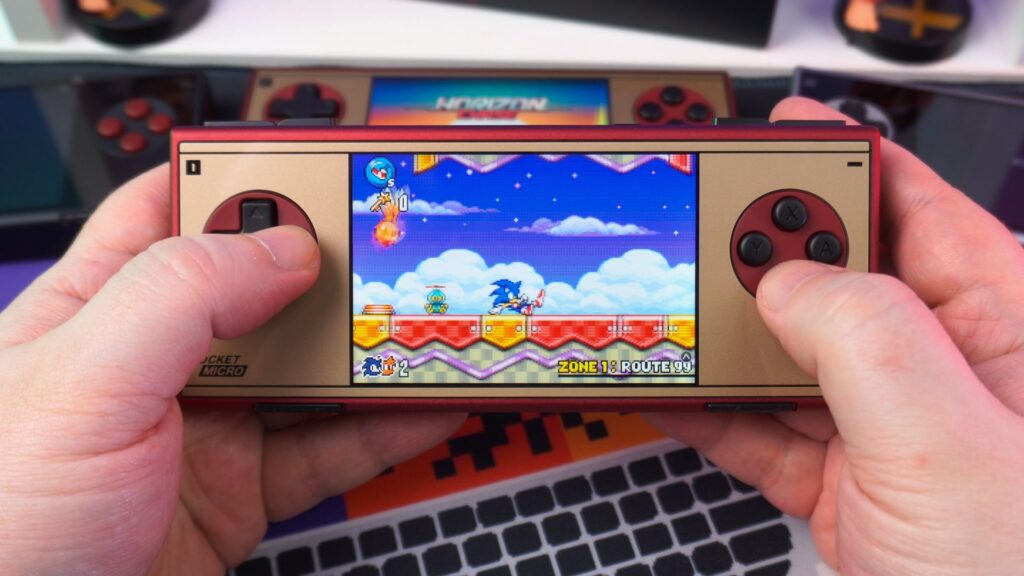
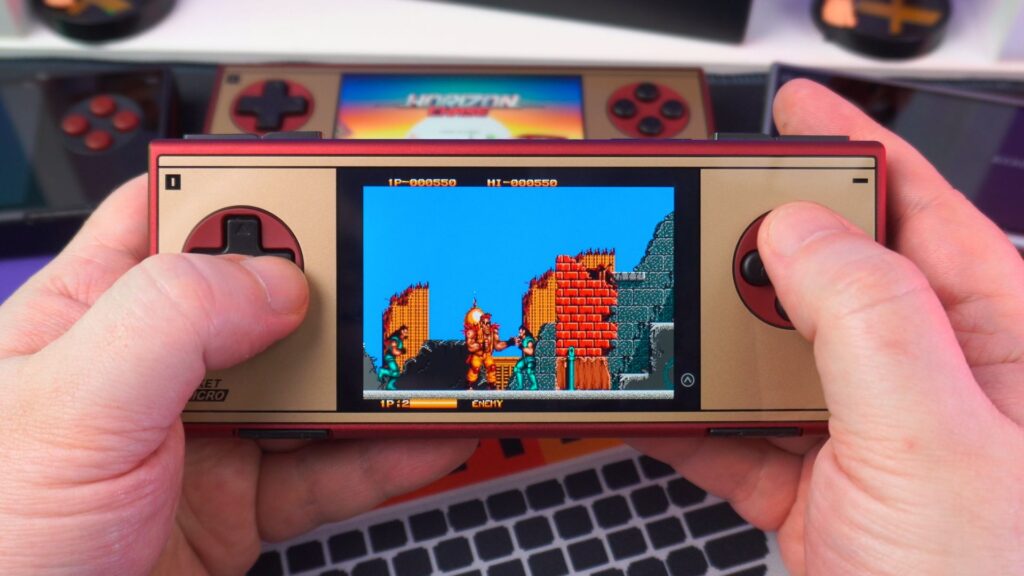
The second key upgrade is the shoulder buttons. Unlike the original model, where they were a single piece, the new AYANEO Pocket Micro Classic model features physically split shoulder buttons. They are also slightly taller, making them feel more responsive. While the change is subtle, it’s a small but welcomed improvement.
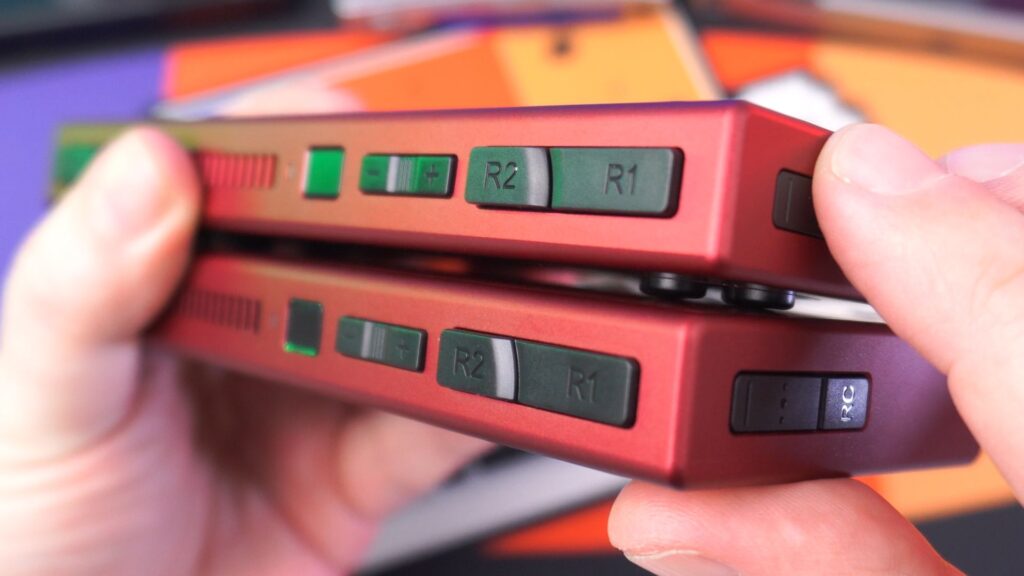
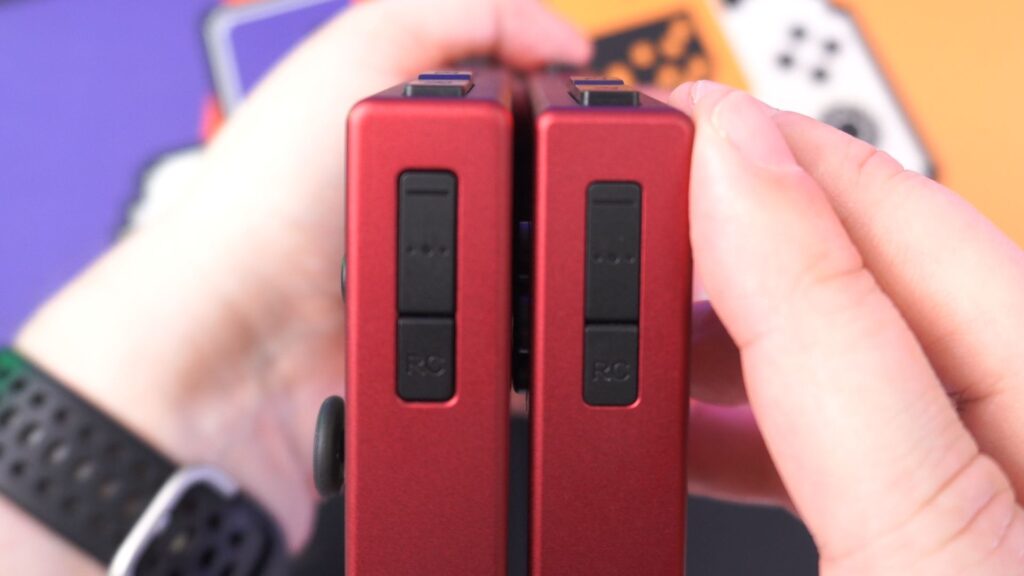
Performance & Final Thoughts
We ran our usual benchmarks and found that the performance remains virtually identical between the two models—any differences fall well within the margin of error. So, there’s no need to worry about any change in performance with the AYANEO Pocket Micro Classic version.
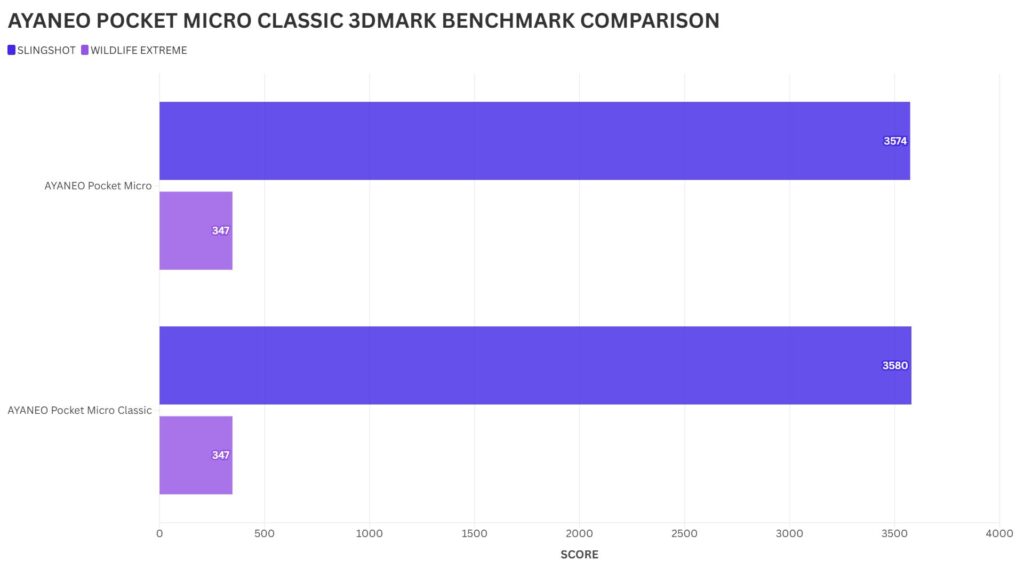
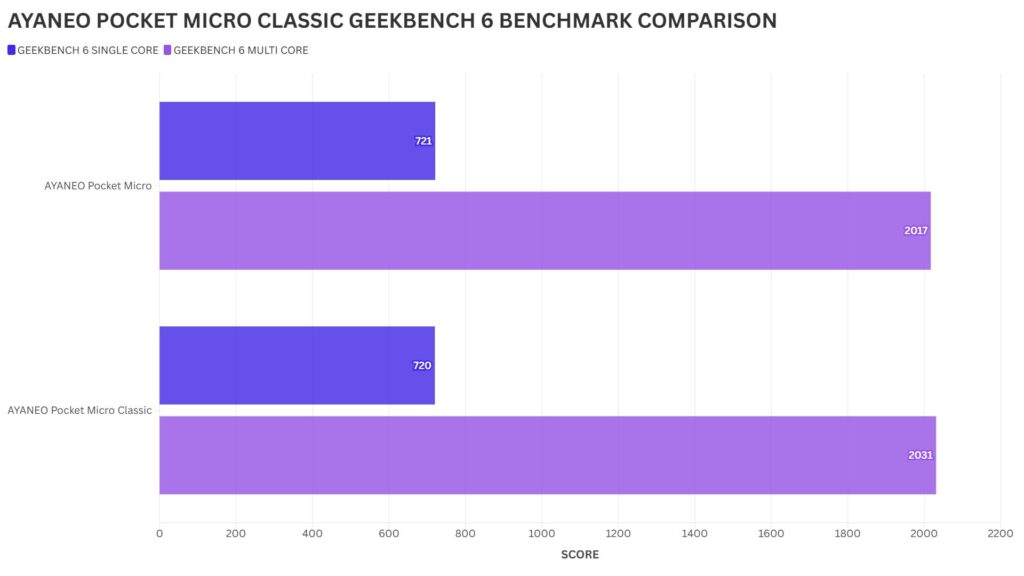
The AYANEO Pocket Micro Classic won’t be for everyone, especially if you prefer analog controls for certain games. However, if you’re looking for a sleeker, more pocketable handheld dedicated to classic retro gaming, it’s an excellent alternative to the Pocket Micro.
If you are interested in learning about the Pocket Micro series including a more detailed overview, benchmarks and Android & emulation performance, you can read our full AYANEO Pocket Micro review here.
You can order both the AYANEO Pocket Micro and Classic here.
We hope you have found our mini AYANEO Pocket Micro Classic review useful in deciding which model to buy. If you do have any questions, please feel free to ask in the comments.







